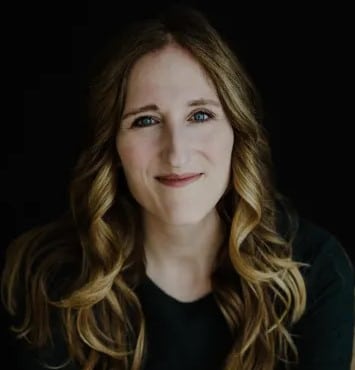Anxiety in veterans is common due to the stress of military service, but specialized treatment can help veterans reduce their anxiety.
Anxiety is a typical response to high-stress situations. It becomes problematic when it’s excessive, frequent or impacts functioning and well-being. Ongoing exposure to stress and trauma often leads to anxiety for service members. Unfortunately for many veterans, the worry, panic or fear continues long after they’ve returned to civilian life.
How Common Is Anxiety in Veterans?
Anxiety is common among veterans. This may be due to increased exposure to stress and trauma during military service or difficulties transitioning to civilian life. Regardless of the cause, the prevalence highlights the importance of having robust care available to veterans.
- 15% of veterans experience anxiety
- Higher rates of anxiety exist among individuals deployed to the U.S. Central Command Area of Responsibility (CENTCOM AoR) at some point during their service than those deployed elsewhere.
The Medical Surveillance Monthly Report reported that from 2016–2020 U.S. service members in the following categories had the highest rate of anxiety disorders:
- Army
- Those 40–49 years old
- Three years or more of service
Anxiety often co-occurs with substance use disorders among the general population and veterans. For example, generalized anxiety disorder (GAD) and panic disorder (PD) have the highest associations with substance use disorders.
Treatment Can Be Life Changing. Reach out today.
Whether you are struggling with addiction, mental health or both, our expert team is here to guide you every step of the way. Don’t wait— reach out today to take the first step toward taking control of your life.
Anxiety Symptoms in Veterans
Symptoms of anxiety are similar between veterans and the general population and include:
- Fear or panic
- Restlessness or irritability
- Excessive worrying or racing thoughts
- Trouble focusing
- Feeling on edge
- Increased heart rate
- Cold or clammy hands
- Trembling or twitching
- Difficulty catching your breath
- Dizziness or nauseous
- Sleep problems such as insomnia or nightmares
- Muscle tension
Signs of Veteran Anxiety
Depending on their specific symptoms, veterans can be diagnosed with any anxiety disorder, including:
- Generalized anxiety disorder
- Panic disorder
- Social anxiety disorder
- Obsessive-compulsive disorder
- Phobia-related disorders
Even though it’s common for veterans to suffer from anxiety, it’s not as likely that they’ll seek help. Mental health stigma within the military community and general population often prevents veterans from reaching out for support. They may be concerned about how others will see them and fear being seen as weak or “messed up.” They might worry about how seeking treatment will impact their VA benefits, employment or ability to re-enlist.
Veterans may try hiding their anxiety from others and acting as if nothing is wrong. Unfortunately, untreated anxiety can worsen the severity of symptoms and their impact on daily functioning.
Anxiety Risk Factors for Veterans
Like the general population, veterans with other mental health concerns, a substance use disorder, a family history of anxiety or previous trauma are at a higher risk for developing anxiety.
Additional factors that put military members at a higher risk for anxiety include:
- Deployment to a conflict zone or the U.S. CENTCOM AoR
- Assigned to a position with higher exposure to stress or violence (combat or healthcare)
- Type of combat
- Polarized public opinion and politics surrounding a war, conflict or mission
- Experiencing or witnessing serious injuries or death
Treatment for Veterans With Anxiety
Fortunately, effective treatments can reduce anxiety. Treatment plans typically include a combination of psychotherapy such as cognitive behavioral therapy (CBT) or acceptance and commitment therapy (ACT), group therapy, family therapy and medications. Your provider may prescribe medications, such as selective serotonin reuptake inhibitors (SSRIs) and serotonin and noradrenaline reuptake inhibitors (SNRIs).
Individuals dealing with co-occurring anxiety and substance use need treatment that addresses both conditions simultaneously. Treatment focusing on both issues, called dual diagnosis treatment, will increase the likelihood of successful long-term recovery.
How To Help a Veteran With Anxiety
When supporting a veteran with anxiety, try not to minimize their experience. Avoid using phrases like “There’s nothing to worry about,” “You’re fine” or “You’re stronger than this.” Instead, validate their feelings and let them know they aren’t alone. For example, you could use phrases such as, “A lot of veterans struggle with anxiety,” “Thank you for telling me what’s going on” or “I’m here with you.” Connect your loved one to local veteran support groups and resources that help with the transition to civilian life. Encourage them to seek therapy or treatment that can help.
FORTITUDE: Specialized Treatment for Veterans
Searching for veteran anxiety support for yourself or a loved one? The FORTITUDE program provides comprehensive services specifically designed for veterans and first responders. This specialty program at The Recovery Village Columbus treats substance abuse and co-occurring mental health conditions, such as anxiety. Patients can access exclusive group therapy with other veterans, individual therapy, EMDR, family therapy, medical detox and more.
The Recovery Village and the VA Community Care Network
The Recovery Village Columbus offers a full continuum of care, from medical detox and residential programming to outpatient services, and is part of the VA Community Care Network. This means we partner with the VA to offer care for veterans outside the VA. We accept VA health insurance for substance abuse treatment and co-occurring anxiety.
Contact us today, and one of our Recovery Advocates will help you navigate your VA benefits and eligibility to get started.








